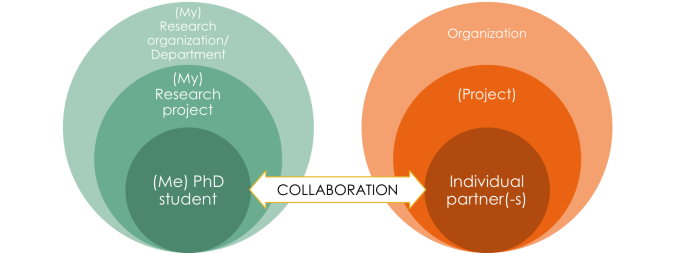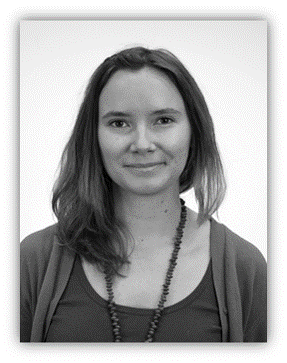This is the second post in the series on ‘Transdisciplinary PhD Journeys’.
Hi there, I am My Sellberg and I am doing a PhD in Sustainability Science at Stockholm Resilience Centre in Sweden. The possibility of doing transdisciplinary research was one of the main reasons for why I decided to do a PhD. The exciting and uncomfortable space between science and practice is where I want to be. I want to contribute to the solutions, and not ‘only’ observe and describe the problems at hand.
Trained in social-ecological resilience thinking, I got interested in whether these quite theoretical ideas could be of any practical relevance. My research focuses on a method for resilience assessment, which is a co-production process of jointly defining and learning about an issue from a systems perspective, analyzing its dynamics and resilience, and coming up with suggested actions. In my work, I have been exploring how resilience assessment can be used in the strategic planning of municipalities and regional organizations. During my PhD, I have collaborated with two different organizations located in different parts of Sweden, a municipality and a rural development organization. Both cases involved co-designing the resilience assessment process together with individual partners in the organizations, and I was the lead (or only) researcher taking part in the collaborations.
The first post in this blog series presented the challenge of the ‘transdisciplinary triple jump’, where PhD students have to simultaneously pay attention to scientific rigor and excellence, societal relevance and engagement, and self-respect and care. In this post, I will share my reflections on one aspect of this challenge: namely, how to find time during your PhD to engage meaningfully with actors outside of academia? It takes a lot of time to build trust and establish collaborations – time that could be spent writing your thesis and producing scientific papers. This relates to the challenge of achieving both academic and practical relevance. Here, I will share some of my reflections of what made the two cases I have been involved in work.
First of all, there have been certain enabling conditions related to my partners, myself as the PhD student, and our respective organizational contexts.

Enabling context for the transdisciplinary collaborations, at the level of individuals, their projects, and the organizations they were embedded in.
At the research center where I am working:
- I could build on connections and collaborations already established by senior researchers.
- There is a supporting environment, including other transdisciplinary researchers and an in-house communications team.
- I benefited from the good reputation of my organization, since both partners contacted us and wanted a collaboration.
- I also have a five-year employment, which I think is quite a luxury. 20 % of that is departmental service, but I have not had to do a lot of teaching, which otherwise can absorb quite a lot of time. Part of the 20 % I could even work as a consultant with one of the partner organizations.
At the project level, stakeholder engagement was included in the project objectives and is something that my supervisors are specifically interested in. At the individual level, I think there definitely could have been more training in how to do this type of research, both providing practical engagement advice, as well as theoretical framings. In the end, it was up to me to find suitable process facilitation courses, for example, and sometimes I have felt like a minority among the other PhD students.
There were also conditions facilitating the partners to collaborate with us. For example, both partners and their project or organization were at the forefront – they wanted to learn and try new methods and approaches to develop their work with sustainability. They were familiar with research and actively sought research collaborations. They also had an own interest and drive, which meant they could be the project managers, or hire someone who could help managing the process, which spared my time so that I could concentrate on managing my PhD project.
Apart from these enabling conditions, there were a few other things that I think were key success factors:
- We were small teams with only 1–2 researchers, 1–2 practitioners, and in one case also a process facilitator, which made the internal communication more manageable.
- We had a similar interest in local-level transitions towards sustainable development, and a common view of the need to transform parts of our societies and economies in order to build resilience of our life-support systems. Having more similar views from the beginning meant it took less time to establish a collaboration.
- That said, we still spent time in the beginning to find a common question or project that had double purposes – that was both relevant for practice and research. It is really important in the beginning to be transparent with, and make sure you are comfortable with, each other’s agendas. Be open to that you might not come up with anything to collaborate around.
- We also made learning an explicit objective of the projects. Being upfront from the start with the exploratory nature of the project, and that you do not know what will come out of it, puts less pressure on producing great outputs and gives more space for reflections.
Now it might seem like it was always a smooth journey, but there have also been some frustrations. In both cases, there has been times with not enough support or resources from the partner organization, which meant that the project was not prioritized, moved forward slowly, and that it became more of a side-project that was not really embedded in the organization. There was little I could do about this, at the same time as I really wanted the project to lead somewhere, which could make it very frustrating. A clear communication beforehand about resources and expectations would have been useful, as well as asking the partners how we could help them in creating support in their own organization.
Some concluding reflections
Looking back at my so far four and a half years of being a PhD student, I think there have been some trade-offs between publishing papers and engaging with societal actors. Focusing on building partner networks made me less productive in writing collaborative papers with other researchers. I have prioritized finishing my own thesis, and engaging with the partners – not writing any “extra” research papers. And has there been any benefits from that prioritization? For me, yes. I have made many more connections outside academia, I have become familiar with different workplaces, it has informed my research questions, and so forth. Of course, this depends on what you want to get out of your PhD, and what you would like to do after. For me it fits well, since I either would like to make a career as a transdisciplinary researcher and become skilled in that, or continue outside of academia. But, I think it is good to recognize that there are trade-offs and that it is a choice you make – you cannot do everything, and that is fine (at least that is what I am telling myself).
Another reflection is that even if you are in a supportive context, as I have been, you might still want to focus on easier type of collaborations. Even though the difficult issues that demand many more actors involved and with much more disparate views probably are more important. In my view, building trust and establishing collaborations in such more complex settings should not be the sole responsibility of a PhD student, but the student could definitely make valuable contributions as part of a bigger transdisciplinary project.
Looking forward to continuing the discussion with you!
Author of this post:

My Sellberg
PhD Scholar at Stockholm Resilience Centre, Stockholm University, Sweden.
Connect with My on social media
